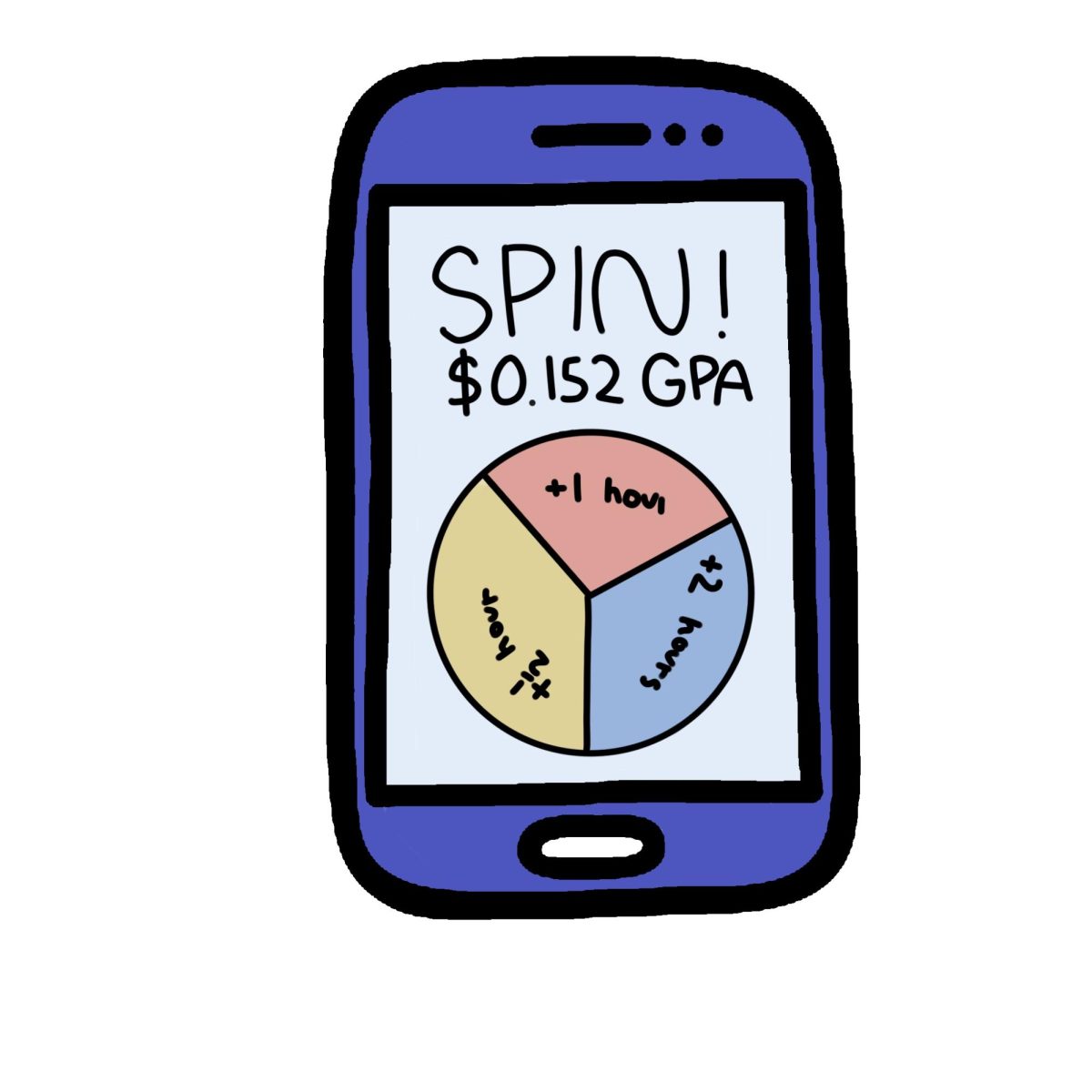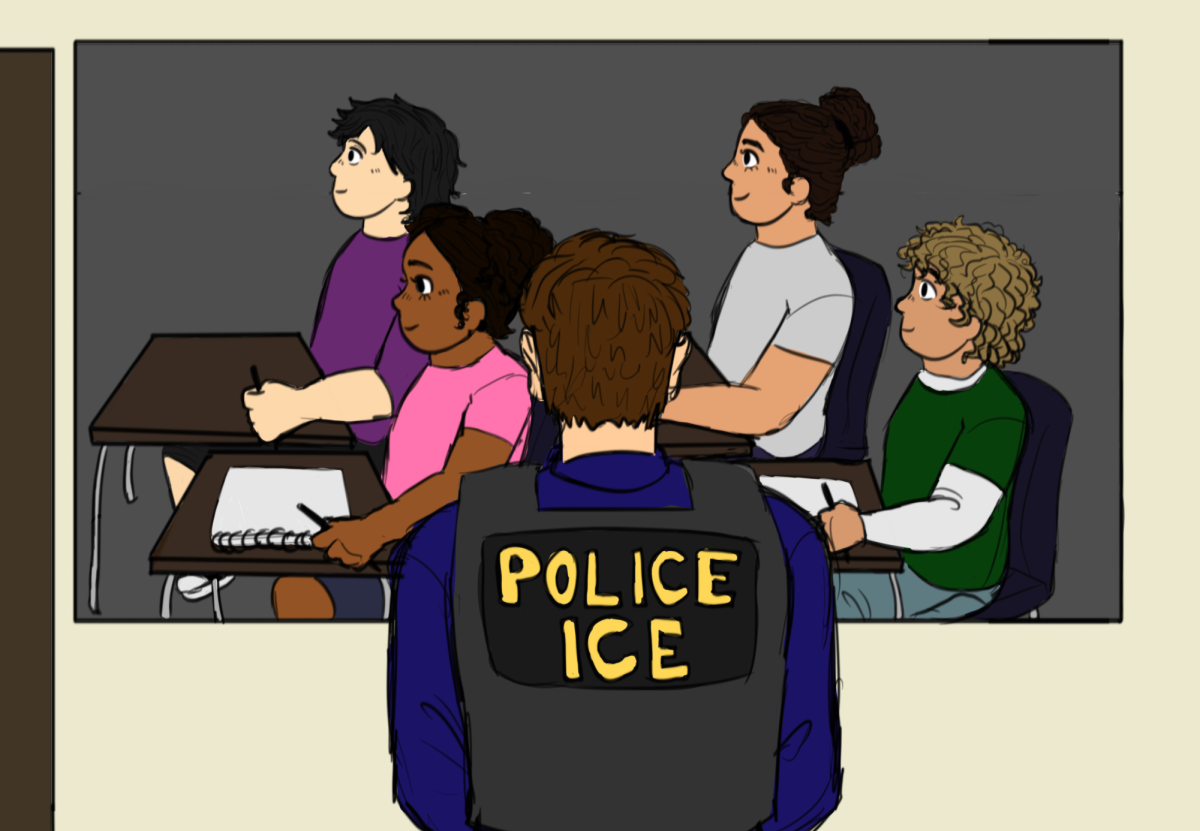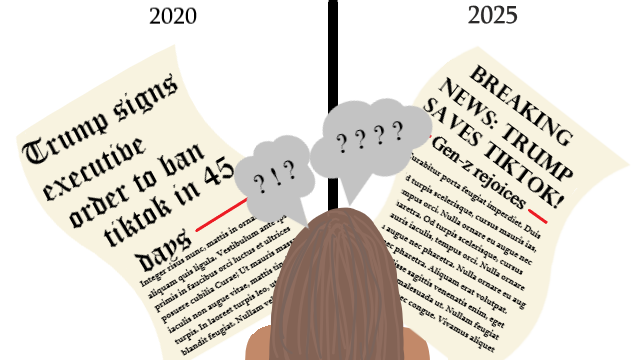Yes, high schools should implement a cell phone ban:
In an era where cell phones are constantly glued to students’ hands, the negative impacts on their education and well-being have become increasingly evident. While cell phones have become a ‘necessity’ in students’ lives, the constant presence of these devices in the classroom has become a significant distraction, interfering with the learning environment. The Sweetwater Union High School District should consider banning cell phones in high schools to foster a more focused and productive educational setting.
One of the primary reasons for such a ban is the detrimental effect that cell phones have on students’ attention spans. According to Harvard Medical School, Do phones belong in schools, “Phones and school don’t mix: Students can’t meaningfully absorb information while also texting, scrolling, or watching YouTube videos.” These activities not only divide attention but also disrupt the learning process, preventing students from fully processing and retaining the information being taught. As a result, students often miss crucial points in the lesson and find themselves struggling to catch up.
Research supports the idea that the presence of cell phones in classrooms diminishes students’ academic performance. An article in ABC News, Cellphones in classrooms contribute to failing grades: Study, Dr. Arnold Glass, a researcher and professor of psychology at Rutgers University, conducted a study where students were divided into two groups. Both groups were taught the same material, but one group was allowed to use their cell phones while the other group was not. The results were striking: the group using their cell phones scored about a letter grade lower than those who were phone-free. This demonstrates that even passive cell phone use, such as checking notifications or texting, can significantly impair students’ ability to learn and retain material.
The harmful effects of cell phones extend beyond mere distractions during class. Multitasking between academic assignments and social media can dilute attention and reduce the quality of schoolwork. Constant notifications from social media platforms can foster procrastination, making it difficult for students to focus on their studies. Over time, these distractions can significantly hinder the development of effective study habits, contributing to lower academic performance and grades. According to ABC News, Cellphones in classrooms contribute to failing grades: Study, “Smartphones can reduce the ability to think to a person’s full potential.” This cognitive impairment not only affects short-term assignments but also has long-term consequences on students’ intellectual growth and critical thinking skills.
Teachers have long been vocal about the disruptive influence of cell phones in the classroom. According to the Los Angeles Times, Op-Ed: My high school students don’t read anymore. I think I know why, a teacher Jeremy Adams had experienced the invasion of smartphones in his classroom struggling to maintain the attention of his students. Teachers across the nation have expressed similar concerns, citing cell phones as one of the biggest barriers to maintaining student engagement and creating a productive learning environment.
Opponents of a cell phone ban may argue that phones are necessary for communication between students and their parents, particularly in emergency situations. However, many schools have found ways to address this concern while still maintaining a phone-free environment. For instance, schools could allow students to carry their phones but require them to be turned off and stored in lockers during school hours. In case of emergencies, parents can contact the school directly, and students can have access to their phones before and after school.
Additionally, schools that enforce phone bans can also promote alternative means of digital learning that are more controlled and less distracting. Laptops and tablets can be used in the classroom under teacher supervision for academic purposes, ensuring that students still have access to the necessary digital resources without the distractions that cell phones bring.
The negative impacts of cell phone use in schools are well-documented, and banning these devices can lead to a more focused and productive learning environment. By eliminating distractions, fostering better study habits, and reducing anxiety related to social media, schools can help students engage more deeply with their education and improve their academic performance.
The Sweetwater Union High School District should take the necessary steps to implement a cell phone ban in high schools, ensuring that students have the opportunity to thrive both academically and personally.
No, high schools should not implement a cell phone ban:
The recent passing of the phone-free school act in California has sparked a heated debate whether banning cellphones in schools is the right approach. While the law aims to reduce distractions and improve students’ focus in classes, it overlooks the role that cellphones play in education. Instead of banning these devices, schools should recognize their potential benefits.
Supporters of the ban argue that cell phones contribute to lower academic performance. On the other hand, an EdSource, Cellphone bans becoming more common in California schools, highlights that cell phones can enhance learning used appropriately. Many students use educational apps, access online resources, and collaborate with classmates on projects all in which are essential parts of successful education.
Studies show that when used responsibly, cellphones can significantly improve learning outcomes. The key issue is teaching students how to use cellphones effectively instead of simply removing them. As stated in the LA times article, Will students really get off cellphones? California’s Phone-Free it is noted that teaching students how to use technology properly can improve learning and increase engagement.
Moreover, building on the previously mentioned article mentioned from EdSource it mentions how banning cellphones can negatively impact students’ sense of security. Cellphones allow students to stay connected with their families throughout the school day. During emergencies, parents appreciate being able to communicate with their children quickly and banning phones would eliminate this vital line of communication. The EdSource article highlights that many parents believe keeping this connection is crucial for their peace of mind, particularly during unexpected or particularly during unexpected or potentially dangerous situations. This highlights the importance of allowing students to have access to their devices.
In addition to improving communication, cellphones help students stay organized. Many rely on their devices to keep track of assignments, deadlines and study reminders. Removing cellphones from the school environment could hinder the students ability to manage their responsibilities effectively, ultimately hurting their academic performance.
While some advocates express concerns about smartphone use and its potential impact on students, banning cellphones does not address underlying issues of digital addiction. These concerns often relate to how students may struggle to manage their device usage, which can interfere with their focus and productivity. Instead of enforcing bans, schools should concentrate on ‘teaching’ healthy technology habits.
By implementing educational programs that promote responsible cell phone usage and self-management, schools can effectively support students in navigating their technology use without relying on strict regulations.
Furthermore, implementing strict cellphone policies can lead to financial burdens for school districts. As highlighted by the California Teachers Association, funding for enforcement tools such as phone lockers can be costly and take away from educational programs that benefit students. While some districts report improved student interactions and reduced bullying, students frequently find ways to circumvent these restrictions. For example, clever students might use old phones or other tricks to keep using their devices, demonstrating that banning cellphones may not eliminate distractions entirely.
Additionally, the Phone-Free School Act raises concerns about equity among students. Not all schools have the same resources to effectively enforce a cellphone ban which can create disparities in how rules are applied. According to CellMatters More California Schools Are Banning Smartphones the legislation restricts school leaders from deciding what’s best for students regarding cell phone use. Instead of strict rules, schools should promote responsible usage to encourage accountability.
Students themselves have mixed feelings about cellphone bans. While many recognize the reason behind the policies aimed at reducing distractions, some argue that an outright ban may not be the best solution. They emphasize that cellphones play a crucial role in communication with family and help students stay organized with their assignments.
Moreover, California’s decision to ban cellphones in schools overlooks the benefits these devices provide. Rather than imposing blanket restrictions, schools should focus on educating students about responsible technology use while encouraging open communication and organization. By doing this students’ success will be supported and they will be better prepared for the digital world they will encounter in the future.








